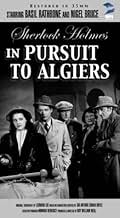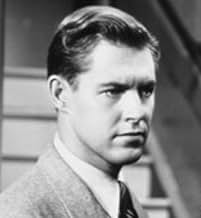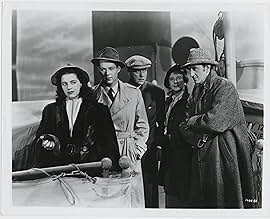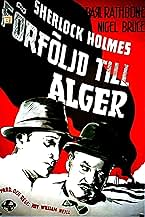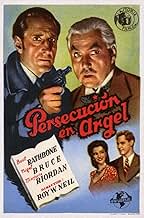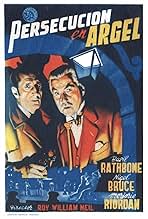IMDb RATING
6.7/10
4.4K
YOUR RATING
Holmes is recruited to escort the heir to a European throne safely back to his homeland after his father's assassination.Holmes is recruited to escort the heir to a European throne safely back to his homeland after his father's assassination.Holmes is recruited to escort the heir to a European throne safely back to his homeland after his father's assassination.
- Director
- Writers
- Stars
William 'Wee Willie' Davis
- Gubec
- (as Wee Willie Davis)
Frederick Worlock
- Prime Minister
- (as Frederic Worlock)
Wilson Benge
- Clergyman
- (uncredited)
Sven Hugo Borg
- Johansson
- (uncredited)
Ernst Brengt
- Ship Passenger
- (uncredited)
James Carlisle
- Aide
- (uncredited)
Ashley Cowan
- Steward
- (uncredited)
James Craven
- Anton Petzval
- (uncredited)
- Director
- Writers
- All cast & crew
- Production, box office & more at IMDbPro
Featured reviews
While this is contrived and silly at times, the best part of it, for me, was the fact that everyone knows what Holmes is up to and he still manages to come out on top. There are two plots at work here. One has to do with the transporting of stolen emeralds and the other the transporting of royalty. On numerous occasions, Holmes turns the tables on his adversaries. The dangers are everywhere and his head spins like an owls as he peers over his shoulder, through the fog, and through portholes. He sets up a wonderful ruse. The men who are out to squelch his efforts are really interesting: a mute thug who uses sign language, a wiry Peter Lorre type with a foreign accent, and a sort of Sydney Greenstreet wannabe. Watson becomes enamored with a pretty young singer who is carrying around secrets. He even belts out his own version of "Loch Lomond" and he proves to have quite a beautiful voice. Without giving anything away, Holmes keeps his cards close to his vest until the denouement. He suspects no one; he suspects everyone. I think this is a lesser effort, but still a lot of fun.
I've seen nearly all of Universal's Sherlock Holmes series by now, and have found that the level of quality doesn't vary too much between each instalment. Every entry in the series is worth watching, and I haven't seen any that I would describe as 'bad'. Pursuit to Algiers fits into this equation snugly, but even so; it's definitely one of the lesser Holmes mysteries. It does feature most of what makes the series great beyond the central plot line - such as a great performance from both the leads, a constant stream of intrigue and some great dialogue; but the actual mystery itself is rather lazy. It simply follows Holmes and Watson looking after a prince onboard a ship full of assassins. Adding to this is the fact that the sets are fairly samey, which doesn't help the film as it a few changes of scenery wouldn't have gone amiss. The film seems to know that it isn't the greatest of Holmes mysteries as well; and this translates to the screen. Holmes himself doesn't appear in the film for a proportion of the running time, which is never good when he's the main reason people are watching; and as good as Nigel Bruce is, he's not enough to carry a film about the great literary detective all on his own. I much prefer it when LeStrade features as well. Still, despite it's bad points, Pursuit to Algiers is a worthy yarn and still worth seeing for fans of these films.
An unusual 'job' is being offered (or rather commanded) to Holmes this time: he's supposed to guard the heir, whose father has just been assassinated, of the throne to an obscure little kingdom safely to Algiers, from where he'll be taken home.
So an ADVENTUROUS ship's passage lies ahead of Holmes, Watson, and the young monarch; the atmosphere is quite dense (even the fog on deck is thicker than in the streets of London...), the plot is suspenseful and has got its pretty surprising moments; and a special feature for friends of Scottish nostalgia and our good Doctor Watson: here Nigel Bruce gets the opportunity to sing (undubbed!) the old Scottish tune "Loch Lomond"!
One of the lighter entries in the Rathbone/Bruce series, good, solid, classic crime entertainment.
So an ADVENTUROUS ship's passage lies ahead of Holmes, Watson, and the young monarch; the atmosphere is quite dense (even the fog on deck is thicker than in the streets of London...), the plot is suspenseful and has got its pretty surprising moments; and a special feature for friends of Scottish nostalgia and our good Doctor Watson: here Nigel Bruce gets the opportunity to sing (undubbed!) the old Scottish tune "Loch Lomond"!
One of the lighter entries in the Rathbone/Bruce series, good, solid, classic crime entertainment.
Despite planning a fishing and shooting holiday in Scotland, Holmes and Dr Watson are approached to help smuggle the Prince Royal of another country back into his homeland. The King has been assassinated already and the Prince is feared to be next. Holmes and the Prince go by plane while Watson travels by boat as a decoy. When Holmes' plane is shot down Watson fears the worst until he finds that Holmes et al are already on the boat. With many days left before Algiers, Holmes must outwit the assassins he suspects are onboard.
I've always enjoyed Watson's contribution to these films just as much as I have Holmes, so I was worried when it looked like Watson would be separated from Holmes for the film. So imagine my happiness when the film actually followed Watson rather than Holmes. Although the film brings Holmes back together with Watson quite quickly, it does give Watson a lot more screen time and respect than they usually do - even going as far to have Holmes praise Watson for his observational skills! This makes a refreshing change - of course Holmes is still the star but it is nice to see him on an almost equal platform for once.
The plot itself is a little worrying at the start but settles once Watson gets on the ship. It allows for some gentleman playing between Holmes and his pursuers who are known to him. This is fun and allows for some nice twists toward the end. The whole thing about the stolen jewels was lost on me and just distracted from the main narrative.
Rathbone is as good as ever and is well worth watching but it is Bruce that impresses here. He does his usual stuff but he gets time to do it and it is fun to see him not being put down by Holmes so much. Holmes' pursuers are better than his usual foes - the amount of screen time that they share and the fact that they are known to each other makes it more enjoyable.
This is a great entry in the series. Bruce rises to the occasion and the twisty confrontation on the ship is very enjoyable as Holmes stays one step ahead. And, having seen the last couple of films end on Holmes giving moral speeches here the film ends on a killer line from Holmes where he advises Watson `never become an actor' - hilarious!
I've always enjoyed Watson's contribution to these films just as much as I have Holmes, so I was worried when it looked like Watson would be separated from Holmes for the film. So imagine my happiness when the film actually followed Watson rather than Holmes. Although the film brings Holmes back together with Watson quite quickly, it does give Watson a lot more screen time and respect than they usually do - even going as far to have Holmes praise Watson for his observational skills! This makes a refreshing change - of course Holmes is still the star but it is nice to see him on an almost equal platform for once.
The plot itself is a little worrying at the start but settles once Watson gets on the ship. It allows for some gentleman playing between Holmes and his pursuers who are known to him. This is fun and allows for some nice twists toward the end. The whole thing about the stolen jewels was lost on me and just distracted from the main narrative.
Rathbone is as good as ever and is well worth watching but it is Bruce that impresses here. He does his usual stuff but he gets time to do it and it is fun to see him not being put down by Holmes so much. Holmes' pursuers are better than his usual foes - the amount of screen time that they share and the fact that they are known to each other makes it more enjoyable.
This is a great entry in the series. Bruce rises to the occasion and the twisty confrontation on the ship is very enjoyable as Holmes stays one step ahead. And, having seen the last couple of films end on Holmes giving moral speeches here the film ends on a killer line from Holmes where he advises Watson `never become an actor' - hilarious!
The Sherlock Holmes Series is actually fun for the fans of Basil Rathbone and Nigel Bruce, but the individual films are a mixed bag as mysteries themselves. The best mysteries are THE SCARLET CLAW, THE HOUSE OF FEAR, THE ADVENTURES OF SHERLOCK HOLMES, THE HOUND OF THE BASKERVILLES, SHERLOCK HOLMES FACES DEATH. The ones about the war are mediocre - more like curiosities dealing with patriotism and the war effort. After the war the series resumed plots dealing with regular crime. The best of these was THE PEARL OF DEATH, but it was not up to the top five films. One of the final films was this one, PURSUIT TO ALGIERS.
Although all the other films were rewritten from the original Conan Doyle stories, PURSUIT TO ALGIERS was totally made up from a comment dropped in the original "Canon". Doyle wrote four novels and fifty six short stories about Holmes. But in this material (equal in size to say LES MISERABLES or DON QUIXOTE) were many little comments and statements that actually have helped lead to the myriad of essays and books by Holmes' fans. Among other things are the large number of cases of Holmes that he or Watson mention casually, but never write of. In this film, the untold story is "the affair of the steamship "Friesland" that so nearly cost us both our lives". It is mentioned in one of the stories of the series called THE RETURN OF SHERLOCK HOLMES, and is usually said to be set in 1895. The actions of PURSUIT TO ALGIERS take place on the steamship "Friesland", and do almost cost Holmes and Watson their lives, but this film is set after the end of World War II. Since there was no real short story that is nothing to be critical about.
Holmes is not in part of the film (and at one point it seems he has been killed), but he does appear about the middle, and he is in good form when he is. Witness the way he takes care of Martin Kosleck, and the way he makes a typically ironic comment to Kosleck as to why he was able to be prepared. Also the business about party favors is quite nicely done. So are the supporting parts - especially Bruce's comments regarding Rosalind Ivan and John Abbott and his partner. As an entertainment it is a fine film. As a mystery it really never gets very involving. We never understand who is in the background backing the anti-royal assassins. Presumably the Communists (this is 1945), but such a guess is based on the number of Eastern European monarchies that fell following the end of World War II. Still it would help to know who the super-villain is. But then Hitchcock always ignored the central rationales of his "MacGuffins". Why not on this lesser level then? So forget the pleasure of realism, sit back, and just enjoy the antics of the characters. And keep in mind, Basil and Nigel made only two other of these films afterward. It was nearly the end of the series for them and their fans.
Although all the other films were rewritten from the original Conan Doyle stories, PURSUIT TO ALGIERS was totally made up from a comment dropped in the original "Canon". Doyle wrote four novels and fifty six short stories about Holmes. But in this material (equal in size to say LES MISERABLES or DON QUIXOTE) were many little comments and statements that actually have helped lead to the myriad of essays and books by Holmes' fans. Among other things are the large number of cases of Holmes that he or Watson mention casually, but never write of. In this film, the untold story is "the affair of the steamship "Friesland" that so nearly cost us both our lives". It is mentioned in one of the stories of the series called THE RETURN OF SHERLOCK HOLMES, and is usually said to be set in 1895. The actions of PURSUIT TO ALGIERS take place on the steamship "Friesland", and do almost cost Holmes and Watson their lives, but this film is set after the end of World War II. Since there was no real short story that is nothing to be critical about.
Holmes is not in part of the film (and at one point it seems he has been killed), but he does appear about the middle, and he is in good form when he is. Witness the way he takes care of Martin Kosleck, and the way he makes a typically ironic comment to Kosleck as to why he was able to be prepared. Also the business about party favors is quite nicely done. So are the supporting parts - especially Bruce's comments regarding Rosalind Ivan and John Abbott and his partner. As an entertainment it is a fine film. As a mystery it really never gets very involving. We never understand who is in the background backing the anti-royal assassins. Presumably the Communists (this is 1945), but such a guess is based on the number of Eastern European monarchies that fell following the end of World War II. Still it would help to know who the super-villain is. But then Hitchcock always ignored the central rationales of his "MacGuffins". Why not on this lesser level then? So forget the pleasure of realism, sit back, and just enjoy the antics of the characters. And keep in mind, Basil and Nigel made only two other of these films afterward. It was nearly the end of the series for them and their fans.
Did you know
- TriviaThe film contains a couple of clever in-jokes for Holmes aficionados in the form of references to famous unrecorded cases for the Great Detective: at one point Watson begins to recite the tale of The Giant Rat of Sumatra (mentioned in Conan Doyle's "The Adventure of the Sussex Vampire"); whilst the action takes place aboard the S.S. Friesland (from Conan Doyle's "The Adventure of the Norwood Builder", and alluded to as "a Dutch-American liner" in his Professor Challenger book "The Lost World", though here it has links to Malmö in Sweden). The film also borrows some characters and events from "The Adventure of the Red Circle."
- GoofsDr Watson discovers an automatic pistol --- i.e., one with a slide-in ammo-clip instead of a rotating cylinder --- in a lady passenger's handbag. He consistently refers to the handgun as a revolver. An ex-Army officer like Watson, no matter how daft, would never make such an "obvious" mistake.
- Quotes
Sherlock Holmes: Possibly, poison is a woman's weapon.
- ConnectionsEdited into Who Dunit Theater: Sherlock Holmes and Pursuit to Algiers (2021)
- How long is Pursuit to Algiers?Powered by Alexa
Details
- Release date
- Country of origin
- Language
- Also known as
- Pursuit to Algiers
- Filming locations
- Production company
- See more company credits at IMDbPro
- Runtime1 hour 5 minutes
- Color
- Aspect ratio
- 1.37 : 1
Contribute to this page
Suggest an edit or add missing content

